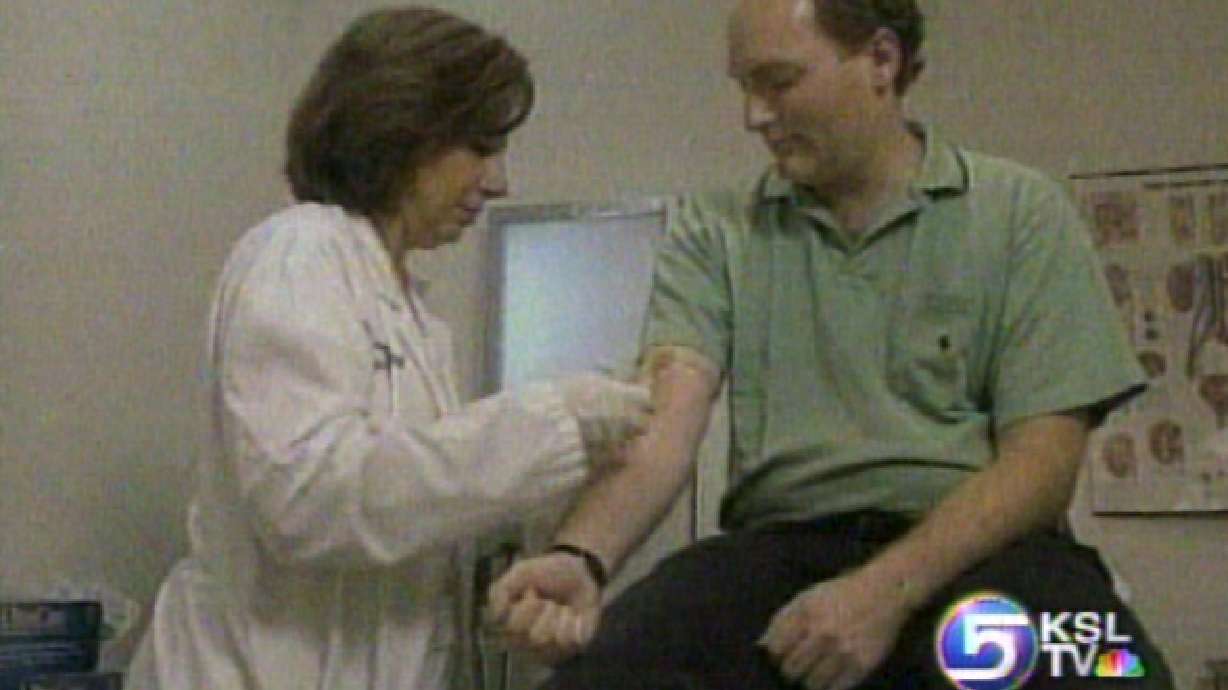Estimated read time: 2-3 minutes
This archived news story is available only for your personal, non-commercial use. Information in the story may be outdated or superseded by additional information. Reading or replaying the story in its archived form does not constitute a republication of the story.
NBC’s Tracie Potts Reporting For years men over 50 have been urged to get an annual PSA test to detect prostate cancer. A new Yale study is getting major criticism for suggesting that while this test may detect cancer early, it does not improve a patient's chances of survival.
Elevated levels of the protein PSA can indicate prostate cancer. A blood test is the best tool doctors have for early detection, but it's far from perfect. Two out of three men with high PSA levels do not have cancer. But for those who catch it early and get good treatment, there's a 99 percent survival rate. That's why patients like John Willey say the test is so important.
John Willey, National Prostate Cancer Coalition: "I know, absolutely for a fact, that without the PSA test I'd be dead right now."
But yale researchers who studied the medical records of a thousand men, half who died of prostate cancer and half who survived, say this test made no difference. The percentage of men tested in each group was about the same. So they argue, all those men had about the same chance of survival, whether or not they were screened.
Critics say there are major flaws in this report, like the small portion of men who actually took the test.
Dr. Eric Klein, The Cleveland Clinic: "I don't understand how you can make a conclusion about efficacy of a particular screening test, or any other test, when it’s only applied to five to 15 percent of the at-risk population. What about the other 85 percent? Doesn't make any sense to me."
Critics also question the length of the study. Patients were followed for up to nine years. But research has shown men often don't die from even aggressive prostate cancers for at least 10 years.
Other concerns: the researchers looked back at medical records after men died instead of following them all along, and the study doesn't consider the effects of different types of treatment.









